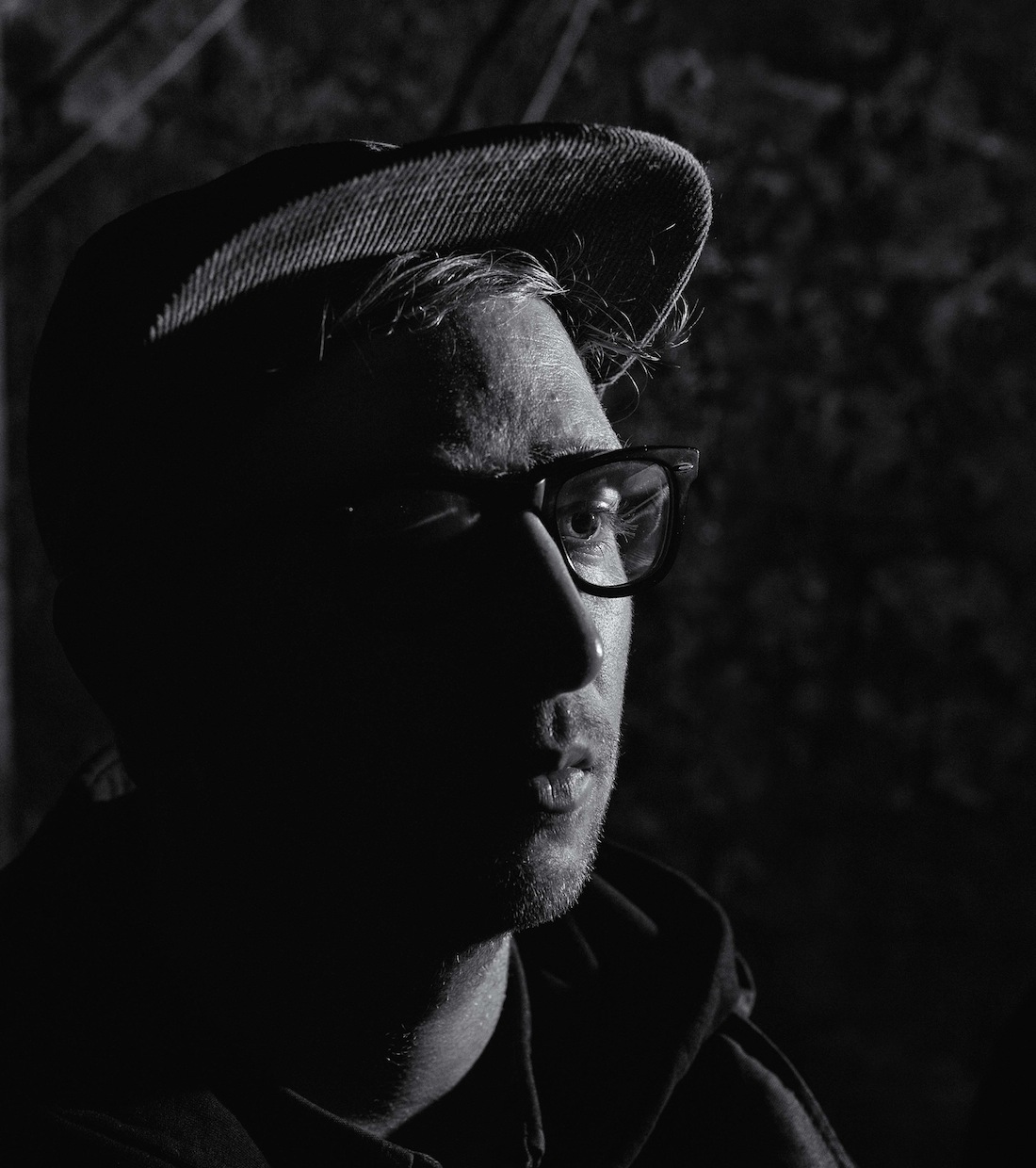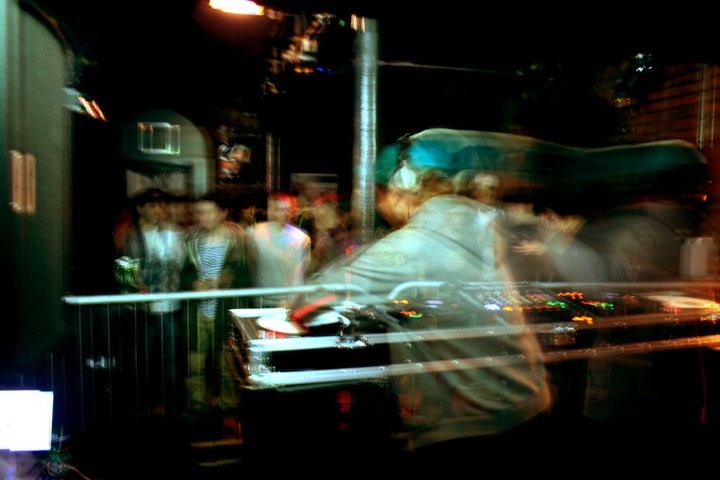Interview: Synkro
His new album, the atmospheric 'Changes,' marks a new chapter for the U.K. producer.

Interview: Synkro
His new album, the atmospheric 'Changes,' marks a new chapter for the U.K. producer.

Manchester, U.K. producer Synkro (a.k.a. Joe McBride) has gone through some big changes in the last few years. If his sound was once in tune with the prevailing deeper resonances of dubstep and the fringes of drum & bass, he’s dancing to a different rhythm now. But while his outlook has altered, this transfiguration is something he’s embraced.
Evolving tastes have been the catalyst for his long-awaited debut album Changes, dropping this September on R&S ambient offshoot Apollo Records. It’s a monumental slab soaked in atmosphere; rich with crackle, field-recording hiss and panoramic, galactic synths. It’s a big record, and belongs in the rarefied company of genre shirkers like Burial or Machinedrum. It’s the kind of album that gets an artist noticed.
Though it hints at his many previous singles and EPs for Exit, Mindset, Box Clever and Apollo, Changes is for the most part a more melancholy, bittersweet ambient affair, resplendent with the analog synths that McBride’s become obsessed with. As one half of techno team Akkord with Liam Blackburn—the pair recently made big waves with their releases for the Houndstooth label—he’s become more in hock to that music, both in its darker vibes and its use of audio hardware. That, in turn, has impacted on his Synkro material.
“Working on the Akkord stuff, it opened me up to a lot of stuff that I had overlooked,” he says. “I got obsessed with dark ambient and drone, people like Emptyset and the Haxan Cloak; I got into Throbbing Gristle and Psychic TV. Going through all the industrial raw stuff I missed out on previously, that’s all rubbed off onto my Synkro work a bit—that doomier, melancholy vibe, rather than everything being all happy and stuff. It’s still quite light, but it has a sad undertone.”

Changes is a deep listen. Tracks like “Harbour” hint at the ambient masters, with its submerged voices, fragments of found sound and incandescent chords echoing through the fug. “Midnight Sun” snaps with a hip-hop crunch, and garbled synth-work reminiscent of Boards of Canada. “Your Heart” is like Zomby via the Resident Evil 2 soundtrack: eerie, menacing and beautiful at once. All are united by Synkro’s use of analog synths, the newest addition to his artillery. Where once he would sample old Krautrock records, now he’s more likely to make the keyboard sounds himself.
“The hardware I’ve chosen is really old and really simple,” he admits. “When you look at a Juno 6 or a 101, there’s no hidden features—it’s all there right in front of you. After working on Ableton, you’re re-teaching yourself how to make the sounds you want with such basic parameters. You have to think more about the process, rather than getting up a preset on an Ableton synth. I’ve never drawn from presets anyway; my main source of sounds is samples. That’s how I got into it. The early drum & bass guys were just sampling shit. If you listen to a Bukem tune, it’s just five other records put together; it’s how I learned. That’s where I came from, production-wise.”
It’s Synkro’s captivation with the roots of electronic music that led him to the earliest pioneers of the form. Heading way back into time, listening to Krautrock and new age music from the ’70s and ’80s—and how it was often jacked for samples — led him to try to recreate those sounds he loves the most. “I’m delving more into early synth works,” he enthuses. “I’m obsessed with Tangerine Dream and Klaus Schulze. I’m coming from the music that I was drawing to sample from, in my early work. I’ve gone back to be like, ‘What gear did they use? How did they make that sound?’ I’m going back, trying to learn the ways of the early synth masters, work it into my music without trying to rip it off, although everybody has. When you start delving into the early electronic stuff, it blows your mind, because you’re like, ‘Oh shit, they were doing this 30 years ago and people see this as a new sound.’ It’s amazing how much you find when you’re looking.”
Still, elements of Synkro’s earlier incarnation as a drum & bass artist crop up all over Changes, just in a more fractured form. “Shoreline,” with its big male vocal, is one of the poppier tracks on the record, but its beats are a barely-there, spare smear of bass drum thump and intermittent drum chatter, that vanish into the gloom as quickly as they appear. The title cut hints at the work of dBridge, in its crisp two-step beat, but it’s a textural effect more than one designed to move a dancefloor. McBride admits it’s still a key influence, but doesn’t see his music in a particular genre pigeonhole.
“Nothing I’ve done as Synkro is really made for a club at all,” he says. “I play the tracks sometimes in sets—but they’re not made for mixing, really. I don’t listen to drum & bass in my spare time; it’s more something that’s stuck with me since I was younger, because it was one of the first genres that got me into electronic music. It’s always there as the backbone. I love breakbeats and stuff like that, I’ll always have a soft spot for drum & bass, but I don’t really class myself as a drum & bass artist. It’s a weird one!”
Synkro’s gift for adding touches of field recordings and found sound to his tracks gives the music a greater immersive quality, an edge over his few competitors. Recording bits of interesting audio wherever he goes, those hisses, rattles and grainy effects are all over Changes. “I use my iPhone a lot. I have several techniques to create stereo effects from really basic iPhone recordings when I’m out and about. If I’m at a train station or in a park, I get my iPhone out. I don’t have a proper field recorder.”
It’s all there to evoke atmosphere. That juxtaposition between the rural outskirts of Greater Manchester where McBride lives, and traveling into the brick and metal of the industrial heart of the city; contrasts of beauty and harshness that are evident all over his tunes and in the work of his techno act Akkord.
“Both me and Liam [from Akkord] come from the outskirts, and always traveled into the city. We’d always meet each other at club nights, and we spent a good few years in the center, building our DJ careers. But because we come from the outskirts, the influence of traveling into the center has always been more of an influence than the city itself—the kind of sprawl, industrial meets countryside, rural northern England. It plays a big part on the influence of our sound, I think.”

Changes is a big deal for Synkro, but he’s already lining up the next raft of records under his host of names. There’s some remixes mooted, plus new stuff from Akkord, and his project alongside Bering Strait, Kiyoko. “Akkord have got something lined up for this year, we’ve got one release coming up on Houndstooth—two new tracks no one’s heard. We’ve sat on them for a while, and they’re gonna come out of the blue, hopefully.” He’s also excited about his label Electro Magnetic Fields (EMF) that he runs alongside Blackburn. “It’s heavily linked to Akkord. It’s basically the dubs we play in our sets by people who are unsigned, where nobody knows who they are. We’ll give them a digital release to give them a bit of exposure, and from that they’ll go on to bigger things. Caski, Troy Gunner, Edmondson…they’ve all had their first release on EMF. I know Caski is doing really well now; I think he has something on Blackdown’s label. Edmondson has just started his own label. It’s to help support up-and-coming artists that send us tunes that we like, and play them in our sets.”
Looks like change is doing Synkro good.
Changes will be released on Apollo Records on September 19.

